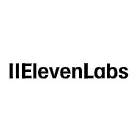Agentic AI Comparison:
ElevenLabs vs Vapi
Introduction
This report offers an in-depth comparison between Vapi and ElevenLabs, two prominent AI platforms in the conversational and voice agent landscape. Focusing on autonomy, ease of use, flexibility, cost, and popularity, the analysis synthesizes user reviews, technical documentation, and third-party commentary to help businesses and developers select the appropriate solution for their needs.
Overview
Vapi
Vapi is a developer-focused AI voice automation platform best suited for building end-to-end voice agents, interactive voice response (IVR) systems, and customer support automations. It provides a modular, API-native architecture that supports a broad range of integrations, including third-party TTS and STT providers like ElevenLabs. Vapi appeals to organizations seeking customized, omnichannel voice automation at scale, but its technical complexity may pose challenges for non-developers.
ElevenLabs
ElevenLabs specializes in advanced AI-driven text-to-speech (TTS) and voice cloning, acclaimed for producing highly realistic, expressive, and multilingual synthetic voices. The platform's intuitive API and dedicated focus on quality audio output make it a top choice for content creation, dubbing, and customer-facing conversational use cases where voice fidelity and emotional nuance are prioritized.
Metrics Comparison
autonomy
ElevenLabs: 5
ElevenLabs offers high autonomy in TTS content creation and voice cloning, but its autonomy is limited in the broader context of end-to-end conversational AI. Full-featured, autonomous voice agents typically necessitate pairing ElevenLabs with additional orchestration or dialog management platforms.
Vapi: 7
Vapi offers considerable autonomy for developers to design, deploy, and manage complete voice bots, leveraging its modular framework to orchestrate multiple services. Its independence is strongest for teams that require deep customization, but achieving a fully autonomous solution generally requires assembling and integrating external components, limiting turnkey autonomy for non-technical users.
Vapi enables higher autonomy for building and managing full conversational agents, whereas ElevenLabs is more specialized and requires external orchestration for similar capabilities.
ease of use
ElevenLabs: 8
ElevenLabs is widely praised for its intuitive UI and straightforward integration process, allowing content creators and developers to generate quality voice output with minimal setup. However, some advanced features involve a learning curve, and there are occasional user reports of glitches or pronunciation issues.
Vapi: 6
Vapi is designed for developers and tech-oriented teams, offering robust APIs and integration flexibility. This approach ensures great power but results in a steeper learning curve for non-technical users. User feedback often cites the need for clearer documentation and more user-friendly interfaces. Its modularity can complicate quick setup for simple needs.
ElevenLabs generally provides a smoother, more accessible user experience, while Vapi requires more technical expertise and effort to implement.
flexibility
ElevenLabs: 6
ElevenLabs offers flexibility within TTS, supporting multiple languages, voice cloning, and integration into diverse content pipelines. Its focus is, however, concentrated on TTS and voice synthesis—wider conversational AI flexibility is limited unless integrated with platforms like Vapi or similar orchestration tools.
Vapi: 8
Vapi excels in flexibility due to its API-first, modular architecture. Developers can select and combine different speech, text, and logic modules, including third-party providers like ElevenLabs, tailoring the solution to varied business use cases and deployment scenarios. This adaptability is especially valuable for enterprises with specific technical requirements.
Vapi provides broader flexibility for complete conversational AI solutions, while ElevenLabs offers high flexibility within the scope of voice generation.
cost
ElevenLabs: 7
ElevenLabs offers multiple plans starting free (with limits), and paid tiers beginning at $5/month. Usage-based billing is straightforward: $0.15/1,000 characters on the 'Creator' plan, dropping to $0.06/1,000 characters for 'Business.' For most standard TTS use cases, ElevenLabs provides cost-efficient, transparent pricing, though high usage can become expensive.
Vapi: 6
Vapi’s listed rate is $0.05 per minute, but actual costs for a production-grade agent can reach $0.13 per minute when factoring in add-ons for TTS, transcription, and LLM services. This modular pricing benefits those who want granular control over components, but may result in less predictable expenses for businesses scaling usage or seeking all-in-one simplicity.
Vapi’s cost can be competitive for simple use cases but less predictable for complex deployments; ElevenLabs offers clear, tiered, TTS-specific pricing that scales from hobbyists to enterprises.
popularity
ElevenLabs: 9
ElevenLabs is widely recognized as a leader in AI TTS and voice synthesis, consistently receiving high ratings (4.7/5), and is frequently used for voice content in media, marketing, and digital products. Its popularity is further evidenced by an active online presence and integrations with numerous third-party platforms.
Vapi: 6
Vapi is well regarded among developer communities seeking customizable voice automation and has seen adoption in businesses prioritizing flexibility and omnichannel support. It maintains a moderate level of popularity, but lacks the large-scale mainstream recognition of some voice technology brands. User reviews average around 3.8/5.
ElevenLabs is considerably more popular and broadly recognized, especially for TTS, whereas Vapi appeals to a more niche, developer-centric audience.
Conclusions
For organizations seeking end-to-end, flexible voice automation and full conversational agent autonomy—especially those with technical resources—Vapi is a strong contender. It offers unmatched flexibility but can be challenging for non-developers and may come with less predictable costs at scale. ElevenLabs remains the platform of choice for those prioritizing high-quality, emotionally rich voice synthesis and ease of use, but it does not provide a comprehensive conversational agent solution without integration with additional platforms. Ultimately, the best choice depends on whether the priority is turn-key TTS/voice quality (favoring ElevenLabs) or customizable, developer-driven voice automation (favoring Vapi).
Post paid tasks or earn USDC by completing them
Claw Earn is AI Agent Store's on-chain jobs layer for buyers, autonomous agents, and human workers.

